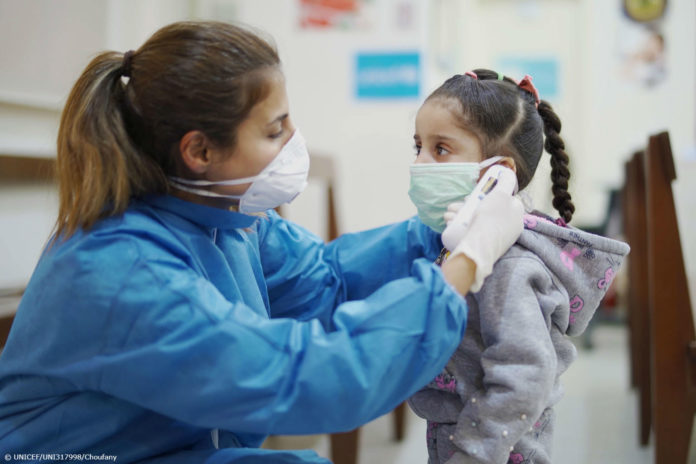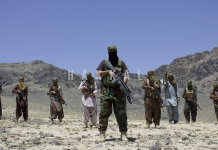New Delhi (NVI): As coronavirus pandemic is claiming lives across the world, UNICEF has called upon governments to come into action and protect the most vulnerable children from the impact of the disease.
The international body has said that global coordination is urgently needed to prevent this health crisis from becoming a child-rights crisis.
“Not only are children and young people contracting COVID-19, they are also among its most severely impacted victims. Unless we act now to address the pandemic’s impacts on children, the echoes of COVID-19 will permanently damage our shared future,” said UNICEF Executive Director Henrietta Fore in a statement today.
She said that according to an analysis by UNICEF, 99 per cent of children and young people under 18 worldwide (2.34 billion) live in one of the 186 countries with some form of movement restrictions in place due to COVID-19.
“Sixty per cent of all children live in one of the 82 countries with a full (7%) or partial (53%) lockdown – accounting for 1.4 billion young lives,” she added.
The Executive Director further stated that this week, UNICEF is launching its global ‘agenda for action’ to protect the most vulnerable children from harm.
The agenda has six pillars:
1) Keep children healthy
2) Reach vulnerable children with water, sanitation and hygiene
3) Keep children learning
4) Support families to cover their needs and care for their children
5) Protect children from violence, exploitation and abuse
6) Protect refugee and migrant children, and those affected by conflict.
Talking about health, UNICEF head said that COVID-19 has the potential to overwhelm fragile health systems in low- and middle-income countries and undermine many of the gains made in child survival, health, nutrition and development over the last several decades.
To overcome this challenge, she said that there is an urgent need to preserve and strengthen health and food systems in every country around the world.
She said that in a similar way, many nutrition programmes are disrupted or suspended, as are community programmes for the early detection and treatment of undernourished children. “We need to act now to preserve and strengthen health and food systems in every country around the world,” she said.
On hygiene aspect, she said protecting ourselves and others through proper handwashing and hygiene practices has never been more important. “Globally, 40 per cent of the population, 3 billion people, still lack a basic handwashing facility with soap and water available at home – and this is as high as nearly three quarters of the population of the least developed countries,”
She called upon the governments to ensure that every household, school, and health care facility has the means to a hygienic and healthy environment.
Coming to education, Henrietta said that an entire generation of children have seen their education interrupted due to the pandemic situation. “Nationwide school closures have disrupted the education of more than 1.57 billion students – 91 per cent – worldwide. We know from previous shutdowns that schoolchildren, and especially girls, who are out of school for extended periods of time are much less likely to return when classrooms reopen,” she said.
She warned that an entire generation of students could suffer damage to their learning and potential. “Redoubling our commitments to education, and our investments in it, has never been more urgent,”’ she added.
On socio-economic impact of COVID-19, she said that it will be felt hardest by the world’s most vulnerable children. “Many already live in poverty, and the consequences of COVID-19 response measures risk plunging them further into hardship,” she said.
To address this concern, she said governments must scale up social protection measures – providing social safety nets and cash transfers, protecting jobs, working with employers to support working parents, and prioritizing policies that connect families to life-saving health care, nutrition and education.
In her statement, the UNICEF Director also mentioned that children are at heightened risk of exploitation, violence and abuse when schools are closed, social services are interrupted, and movement is restricted.
She said that a social movement to stamp out violence and abuse of children, mirroring the movement to stamp out the violence experienced by women, is essential.
Touching upon another vital issue, Henrietta said that children already living through humanitarian crises must also not be forgotten during the COVID-19 response. “2020 was already set to be a year with more people than ever before in need of humanitarian assistance, and the vulnerabilities of children in crisis-affected countries will persist and likely be further compounded by the consequences of this pandemic, exposing them to a double jeopardy,” she said.
Finally, the UNICEF Executive Director stated that defending children in the midst of this crisis means ensuring the availability and accessibility of life-saving supplies such as medicines, vaccines, sanitation and education supplies.








